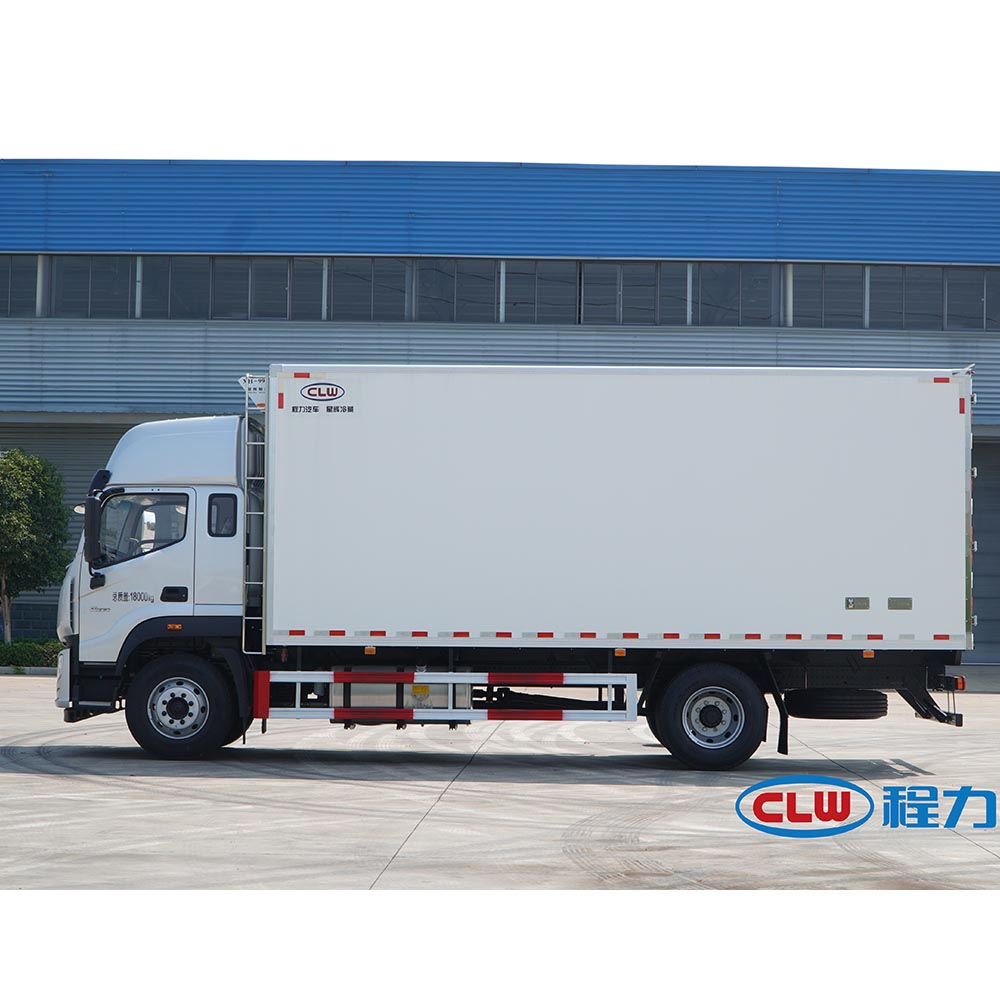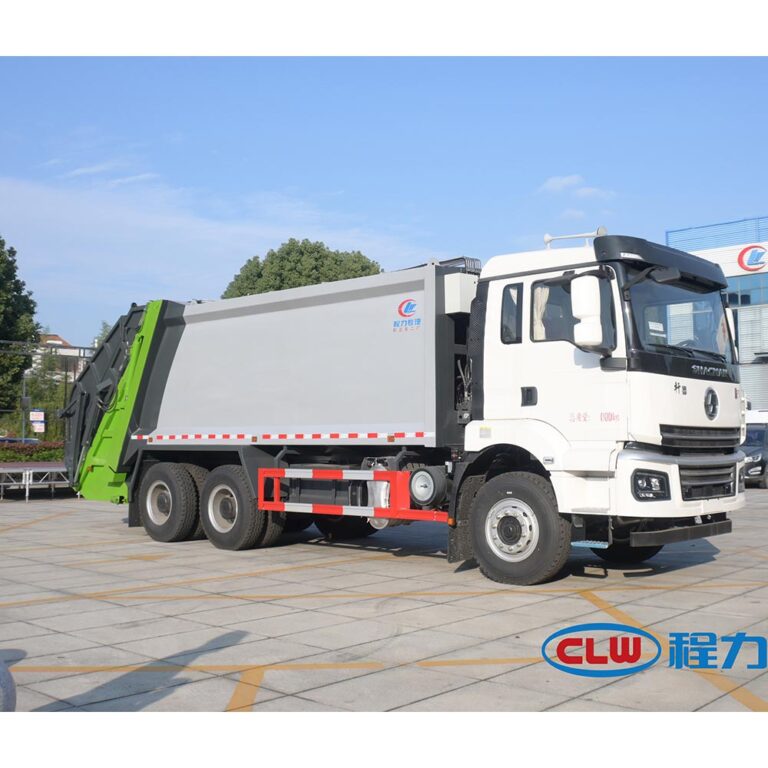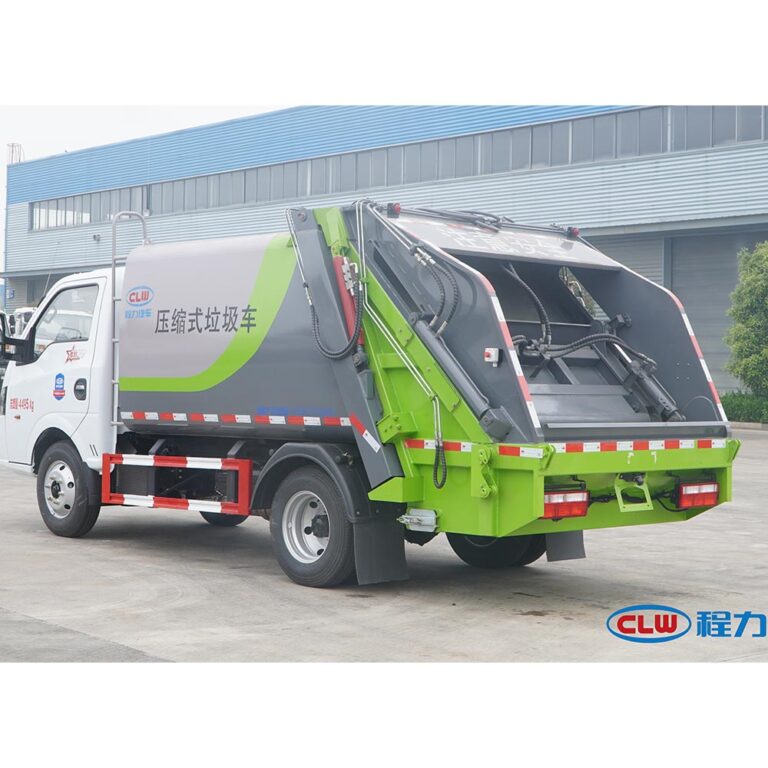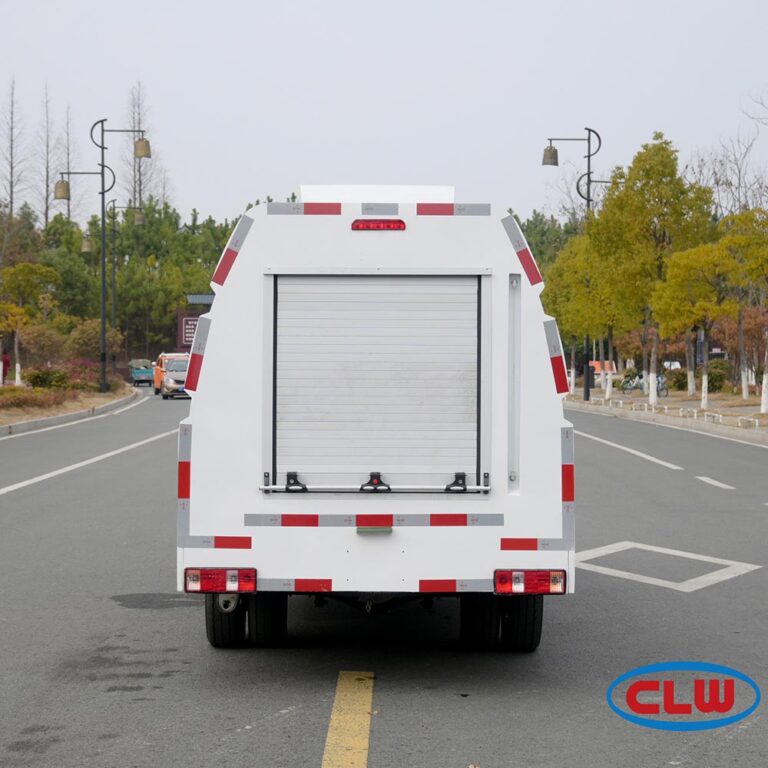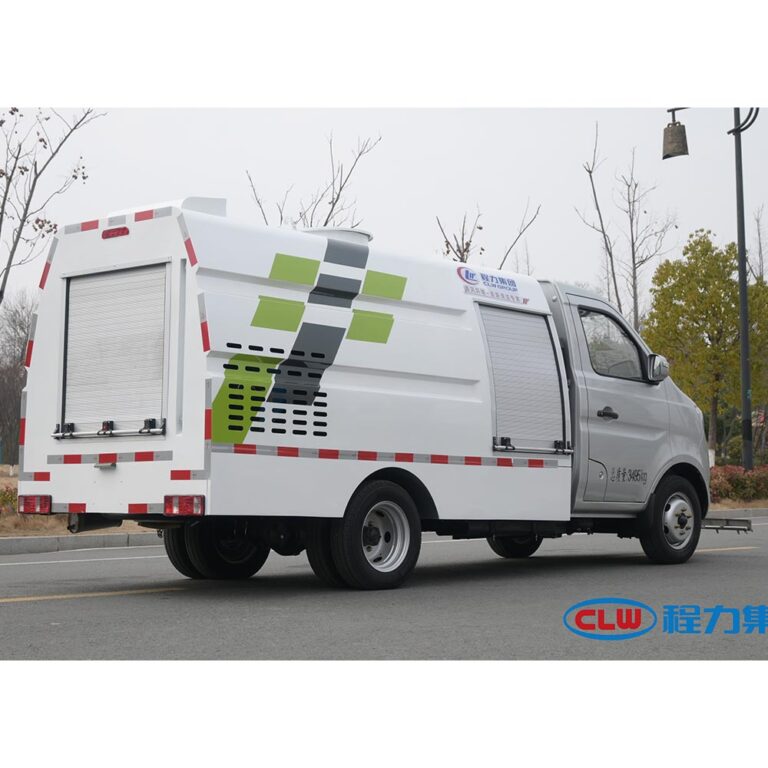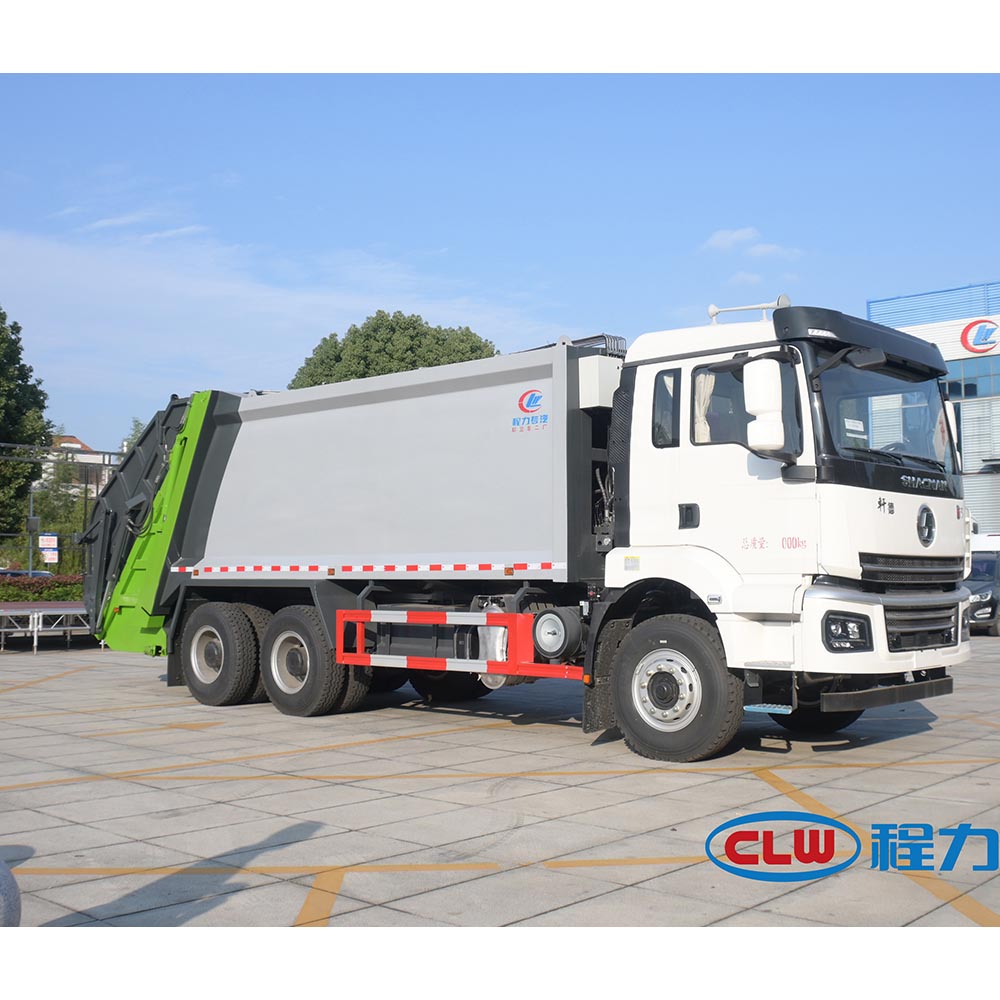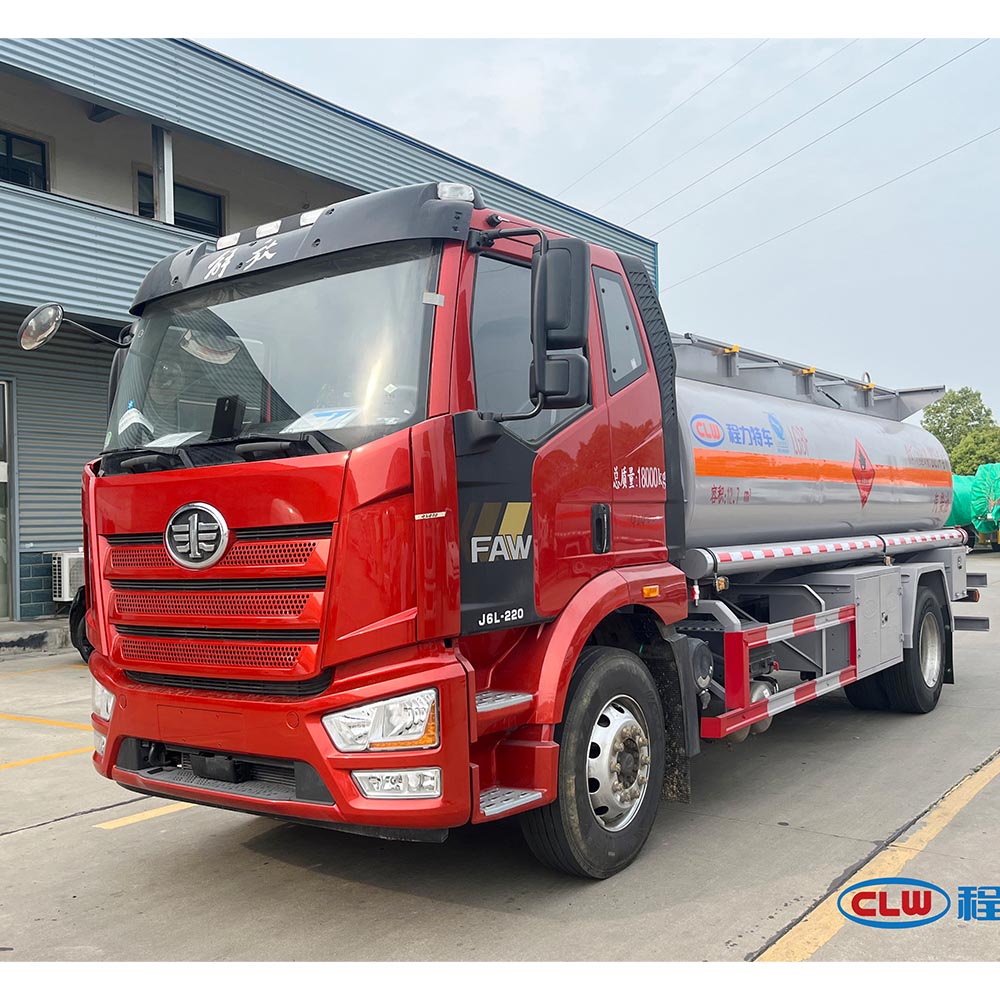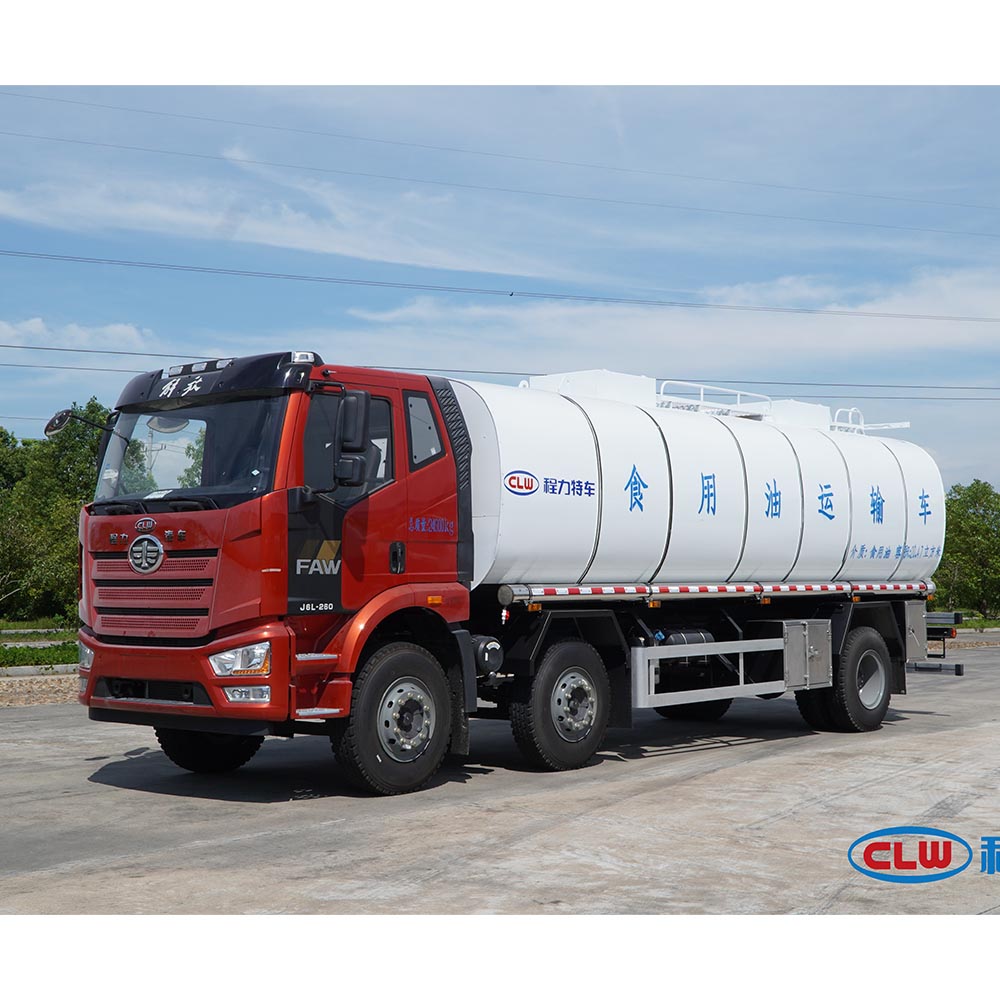-
Parque Industrial Automóvel de Chengli
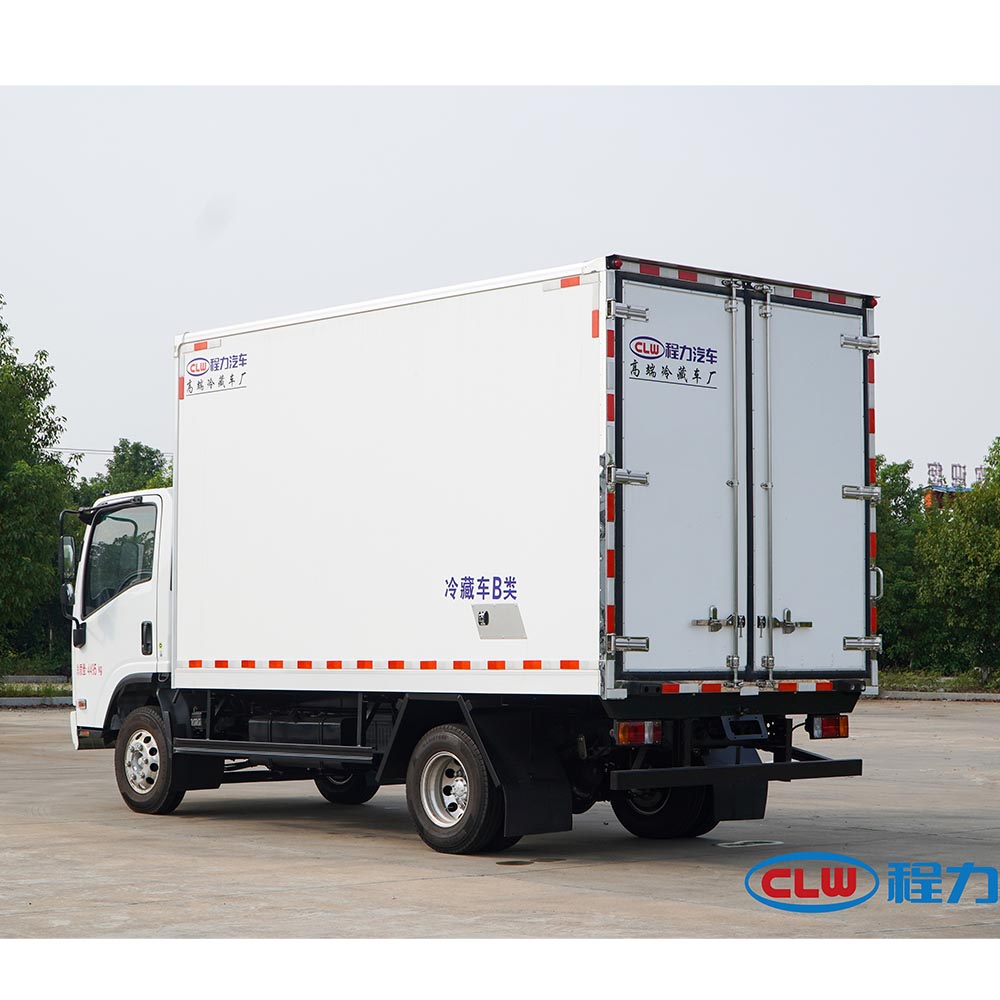
problemas comuns dos camiões frigoríficos
Resolver problemas como um profissional: 7 problemas comuns com reboques frigoríficos e como os resolver
Este artigo aprofunda os problemas mais frequentes enfrentados pelos operadores de camiões frigoríficos, oferecendo soluções práticas e medidas preventivas. Quer seja um condutor experiente ou novo no sector, compreender estes desafios e as respectivas soluções é crucial para garantir o transporte seguro e eficiente de cargas sensíveis à temperatura. Esta leitura vale o seu tempo, uma vez que o equipa com os conhecimentos necessários para manter o desempenho ideal do seu reboque frigorífico, minimizar o tempo de inatividade e proteger a sua valiosa carga.
Índice
O que significa Reefer no sector dos camiões?
"Reefer" é um termo de gíria que significa reboque refrigerado. Estes reboques são essenciais para o transporte de bens perecíveis, como alimentos, produtos farmacêuticos e flores, mantendo-os a uma temperatura específica e consistente. Como uma fábrica líder no fabrico de camiões frigoríficos, compreendemos que os nossos produtos são cruciais para empresas como processadores de alimentos, distribuidores farmacêuticos e grossistas de flores.
Os camiões frigoríficos desempenham um papel vital na cadeia de abastecimento da cadeia de frio. Estão equipados com uma unidade auto-alimentada que arrefece o interior do reboque, garantindo que a carga permanece dentro do intervalo de temperatura exigido. A média que estimamos para a vida útil de um camião refrigerado é de 8 a 10 anos. No entanto, uma manutenção adequada e inspecções regulares podem ajudar a manter o valor de isolamento geral e a prolongar a vida útil da unidade. Compreender o camião frigorífico não é apenas conhecer o termo; é apreciar a tecnologia e os cuidados necessários para manter as mercadorias frescas e seguras durante o transporte.
Porque é que a manutenção de camiões frigoríficos é tão importante?
A manutenção dos camiões frigoríficos é fundamental para garantir o transporte seguro e eficiente de mercadorias sensíveis à temperatura. A manutenção e reparação regulares são a melhor forma de evitar avarias inesperadas e reparações dispendiosas. Negligenciar a manutenção pode levar à deterioração da carga, a perdas financeiras significativas e a interrupções na cadeia de abastecimento. Por exemplo, uma unidade de refrigeração avariada pode fazer com que a temperatura no interior do reboque frigorífico aumente, estragando artigos perecíveis como frutas, legumes ou produtos lácteos.
Os calendários de manutenção preventiva devem incluir verificações das correias e mangueiras, das mangueiras de arrefecimento e do sistema de refrigeração. As empresas de transporte devem garantir que os seus condutores sejam capazes de identificar potenciais problemas à medida que estes ocorrem. Isto inclui a verificação de fugas de fluidos, vedações de portas danificadas e quaisquer problemas com o compressor ou condensador. Ao aderir a uma rotina de manutenção rigorosa, as empresas podem garantir que os seus camiões frigoríficos estão sempre em condições de funcionamento, fornecendo um serviço fiável aos clientes e protegendo a sua reputação. A Emerald Transportation Solutions pode ajudá-lo a implementar um plano de manutenção eficaz.
Com que frequência deve ser efectuada a manutenção de um reboque frigorífico?
A manutenção de um reboque frigorífico deve ser efectuada pelo menos a cada 1.000 a 1.500 horas de funcionamento. Isto assegura que todos os componentes, como o compressor, o condensador e o evaporador, estão a funcionar corretamente. As inspecções regulares são vitais para detetar pequenas questões antes que se transformem em problemas graves. Por exemplo, a verificação dos níveis do líquido de refrigeração e a inspeção das mangueiras ou correias quanto a desgaste podem evitar avarias inesperadas.
Para além dos serviços programados, os condutores devem efetuar inspecções diárias antes da viagem. Isto inclui verificar a unidade frigorífica quanto a alertas, assegurar que os vedantes da porta estão intactos e verificar se as definições de temperatura estão corretas. Ao combinar a manutenção profissional regular com verificações diárias, os operadores podem reduzir significativamente o risco de avarias e garantir que os seus reboques frigoríficos estão sempre prontos para transportar cargas perecíveis em segurança. Para as empresas que transportam alimentos, flores e produtos farmacêuticos, a manutenção de um controlo de temperatura adequado é crucial para evitar perdas financeiras devido a carga estragada e riscos de segurança devido a medicamentos comprometidos. A manutenção regular, incluindo a verificação e substituição de peças gastas e a garantia de que o sistema de refrigeração está calibrado e sem fugas, é essencial para manter a qualidade do produto.
Quais são os problemas mais comuns dos reboques frigoríficos?
Os problemas comuns dos reboques frigoríficos resultam frequentemente de questões relacionadas com a unidade de refrigeração, tais como fugas de refrigerante, avarias nos sensores e vedantes das portas danificados. Outro problema comum são as más práticas de carregamento, que podem perturbar o fluxo de ar e levar a temperaturas inconsistentes no interior do reboque. As fugas de fluido, particularmente no sistema de refrigeração, também são predominantes e podem causar interrupções significativas se não forem resolvidas prontamente.
| Problema | Descrição | Solução |
| Fugas de refrigerante | Perda de fluido frigorigéneo, o que leva a um arrefecimento insuficiente. | Inspecionar regularmente as mangueiras e as ligações quanto a fugas. Recarregar o refrigerante e reparar eventuais fugas. |
| Avarias no sensor | Leituras de temperatura inexactas ou falha na regulação da unidade de arrefecimento. | Calibrar ou substituir os sensores avariados. Assegurar que os sensores estão corretamente colocados e protegidos. |
| Vedantes de porta danificados | Fugas de ar à volta das portas, causando flutuações de temperatura e aumento do consumo de energia. | Inspecionar regularmente as vedações das portas e substituí-las se estiverem danificadas. Assegurar que as portas estão corretamente fechadas e trancadas durante o transporte. |
| Más práticas de carregamento | Carregamento incorreto da carga, obstruindo o fluxo de ar e provocando um arrefecimento irregular. | Formar os condutores e carregadores em técnicas de carregamento corretas. Utilizar anteparas para separar diferentes zonas de temperatura dentro do mesmo reboque. Assegurar que existe espaço suficiente para a circulação de ar em todo o veículo. |
| Fugas de fluido | Fugas no sistema de arrefecimento, tais como fugas de líquido de arrefecimento ou de óleo. | Inspecionar regularmente os níveis de fluidos e verificar se existem fugas. Reparar imediatamente quaisquer fugas e atestar os fluidos conforme necessário. |
| Problemas com o compressor | Problemas com o compressor, que provocam um arrefecimento insuficiente. | Verificar regularmente se o compressor apresenta ruídos ou vibrações invulgares. Se necessário, efetuar a manutenção ou substituir o compressor. |
| Problemas com o condensador | Problemas com o condensador, como bloqueios ou danos, que afectam a eficiência da unidade de refrigeração. | Inspecionar o condensador para verificar se existem detritos e limpá-lo regularmente. Reparar ou substituir as bobinas do condensador danificadas. |
| Avarias eléctricas | Problemas eléctricos, tais como cablagem defeituosa ou fusíveis fundidos, que afectam o funcionamento da unidade frigorífica. | Verificar regularmente o sistema elétrico para detetar eventuais problemas. Reparar ou substituir a cablagem e os fusíveis defeituosos. |
| Calhas de ar obstruídas | Obstruções nas condutas de ar, impedindo um fluxo de ar adequado no interior do reboque. | Inspecionar e limpar regularmente as condutas de ar. Certifique-se de que a carga não está a bloquear o fluxo de ar. |
| Isolamento inadequado | Danos no isolamento do reboque, que levam a um mau controlo da temperatura. | Inspecionar o isolamento do atrelado quanto a danos e repará-lo se necessário. Considere a possibilidade de atualizar o isolamento para um melhor controlo da temperatura. |
A compreensão destes problemas comuns pode ajudar os operadores a tomar medidas proactivas para os evitar. As inspecções regulares, as reparações atempadas e a formação adequada dos condutores e do pessoal de carga são essenciais para manter um reboque frigorífico em óptimas condições.
Como solucionar problemas de uma unidade frigorífica?
A resolução de problemas de uma unidade frigorífica envolve uma abordagem sistemática para identificar e resolver quaisquer problemas. Comece por verificar se existem códigos de alerta no painel de visualização da unidade. Esses códigos podem fornecer pistas valiosas sobre a natureza do problema. Em seguida, inspeccione os componentes físicos do sistema de refrigeração, incluindo o compressor, o condensador e o evaporador, para detetar quaisquer sinais de danos ou desgaste.
Se a unidade não estiver a arrefecer corretamente, verifique os níveis de refrigerante e procure eventuais fugas nas mangueiras ou ligações. Além disso, certifique-se de que o fluxo de ar no interior do atrelado não está obstruído por carga incorretamente carregada ou por condutas de ar bloqueadas. A resolução adequada de problemas requer uma combinação de conhecimentos técnicos e experiência prática, e é por isso que é crucial que os condutores tenham formação para lidar eficazmente com estas situações.
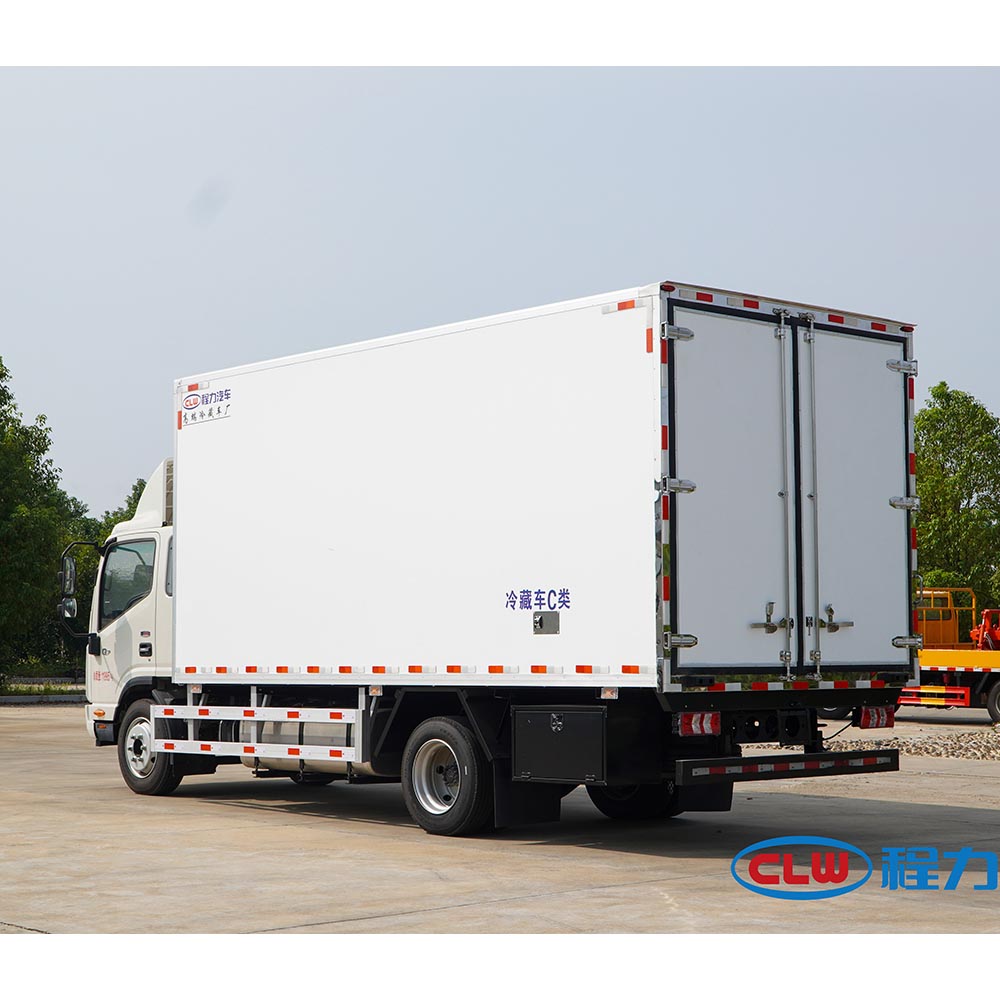
Porque é que o carregamento correto de um reboque frigorífico é crucial?
O carregamento correto de um reboque frigorífico é essencial para manter temperaturas consistentes e garantir a segurança dos produtos perecíveis. O carregamento incorreto pode obstruir o fluxo de ar, levando a pontos quentes e a um arrefecimento desigual. Isto pode causar problemas como a deterioração ou degradação de cargas sensíveis à temperatura. Ao carregar, é importante deixar espaço entre as paletes e as paredes do atrelado para permitir a livre circulação do ar.
A utilização de anteparas pode ajudar a criar zonas de temperatura diferentes dentro do mesmo atrelado, acomodando produtos com requisitos de temperatura diferentes. Além disso, evite colocar os produtos diretamente contra o evaporador ou as portas traseiras, pois isso pode bloquear o fluxo de ar e sobrecarregar a unidade de refrigeração. As práticas de carregamento corretas não só protegem a carga, como também aumentam a eficiência e a longevidade da unidade frigorífica.
Qual é o papel dos sensores numa unidade de refrigeração?
Os sensores são componentes críticos de uma unidade de refrigeração, responsáveis pela monitorização e regulação da temperatura no interior do reboque frigorífico. Estes dispositivos medem a temperatura em vários pontos dentro do reboque e enviam dados para a unidade de controlo. A unidade de controlo ajusta então o sistema de refrigeração para manter o intervalo de temperatura desejado. Se os sensores fornecerem leituras imprecisas ou falharem, a unidade de controlo não consegue regular a temperatura de forma eficaz, o que pode provocar a deterioração da carga.
A calibração regular dos sensores é essencial para garantir a sua exatidão. Além disso, os sensores devem ser inspeccionados quanto a danos ou desgaste durante as verificações de manutenção de rotina. O funcionamento adequado dos sensores é crucial para o funcionamento fiável da unidade de refrigeração, garantindo que os bens perecíveis chegam ao seu destino em condições óptimas.
Como é que os vedantes de porta danificados podem afetar um reboque frigorífico?
Os vedantes das portas danificados podem comprometer significativamente a eficiência de um reboque frigorífico. As vedações das portas criam uma barreira hermética que impede a entrada de ar exterior no atrelado e a saída de ar frio. Quando os vedantes estão danificados ou gastos, ocorrem fugas de ar, fazendo com que a unidade de refrigeração tenha de trabalhar mais para manter a temperatura desejada. Isto não só aumenta o consumo de energia, como também sobrecarrega o sistema de refrigeração, podendo levar a avarias.
Inspecionar e substituir os vedantes das portas danificados deve ser uma parte regular da manutenção dos reboques frigoríficos. Assegurar que as portas estão corretamente fechadas e trancadas durante o trânsito também pode ajudar a evitar fugas de ar. Ao manter a integridade dos vedantes das portas, os operadores podem garantir que os seus reboques frigoríficos funcionam de forma eficiente e eficaz, protegendo a carga e reduzindo os custos operacionais.
O que fazer quando a sua unidade frigorífica tem uma avaria?
Quando uma unidade frigorífica tem uma avaria, é necessária uma ação imediata para evitar a deterioração da carga. Em primeiro lugar, os condutores devem encostar em segurança e avaliar a situação. Verifique se existem códigos de alerta no painel de controlo e anote-os. Se possível, tente identificar a causa da avaria, inspeccionando a unidade para detetar problemas óbvios, como fugas de fluidos ou componentes danificados.
Se o problema não puder ser resolvido rapidamente, contacte a equipa de manutenção da sua empresa ou um serviço de assistência na estrada especializado em transporte refrigerado. É também crucial notificar o expedidor e o destinatário sobre o atraso e o potencial impacto na carga. Em alguns casos, pode ser necessário transferir a carga para outro camião refrigerado para evitar a deterioração. Uma ação rápida e decisiva pode ajudar a mitigar os danos e garantir que a carga chega ao seu destino com o mínimo de perdas.
Como podemos ajudá-lo com as suas necessidades de camiões frigoríficos?
Como fabricante líder de camiões frigoríficos, estamos empenhados em fornecer produtos de alta qualidade e um serviço excecional aos nossos clientes. Os nossos camiões são concebidos para satisfazer as diversas necessidades de indústrias como a de processamento de alimentos, farmacêutica e de transporte de flores. Oferecemos uma vasta gama de modelos equipados com sistemas de refrigeração avançados, garantindo um controlo fiável da temperatura da sua carga perecível.
A nossa equipa experiente pode ajudá-lo a selecionar o camião frigorífico adequado às suas necessidades específicas e fornecemos serviços de manutenção e reparação abrangentes para manter a sua frota em condições óptimas. Se encontrar algum problema com a sua unidade frigorífica, os nossos técnicos especializados estão disponíveis para solucionar e resolver quaisquer problemas prontamente. Não hesite em contactar-nos para quaisquer questões ou para agendar uma consulta. Estamos aqui para apoiar o seu negócio e garantir que as suas necessidades de transporte refrigerado são satisfeitas com os mais elevados padrões de qualidade e fiabilidade.
FAQs
O que é um camião frigorífico em termos de transporte rodoviário?
Um reefer é um termo utilizado na indústria dos camiões que se refere a um reboque frigorífico concebido para transportar mercadorias perecíveis a temperaturas específicas.
Como posso saber se o meu reboque frigorífico precisa de manutenção?
Se notar flutuações de temperatura, ruídos invulgares da unidade frigorífica ou quaisquer códigos de alerta no painel de controlo, é altura de mandar reparar o seu reboque frigorífico. Além disso, recomenda-se uma manutenção regular a cada 1.000 a 1.500 horas de funcionamento.
O que devo fazer se a minha unidade frigorífica se avariar na estrada?
Se a sua unidade frigorífica se avariar, encoste em segurança, avalie a situação e verifique se existem códigos de alerta. Se não conseguir resolver o problema, contacte a equipa de manutenção da sua empresa ou um serviço especializado de assistência na estrada. Notifique o expedidor e o destinatário sobre o atraso e tome medidas para proteger a carga, como transferi-la para outro camião frigorífico, se necessário.
Como posso evitar que o meu reboque frigorífico se avarie?
A manutenção regular, incluindo inspecções da unidade de refrigeração, dos vedantes da porta e dos sensores, é a melhor forma de evitar avarias. Assegurar práticas de carregamento adequadas para manter o fluxo de ar e evitar sobrecarregar a unidade de refrigeração. Formar os condutores para efectuarem inspecções diárias antes da viagem e resolverem prontamente quaisquer problemas.
Quais são os sinais de uma fuga de refrigerante numa unidade frigorífica?
Os sinais de uma fuga de refrigerante incluem arrefecimento insuficiente, sons sibilantes provenientes das mangueiras ou ligações e a presença de resíduos oleosos à volta dos encaixes. Se suspeitar de uma fuga, peça a um técnico que inspeccione e repare o sistema imediatamente.
Qual é a importância da utilização de anteparas num reboque frigorífico?
A utilização de anteparas é muito importante quando se transportam mercadorias que requerem zonas de temperatura diferentes dentro do mesmo reboque. As anteparas ajudam a criar compartimentos separados, assegurando que cada secção mantém a sua temperatura necessária e evitando a contaminação cruzada.
Principais conclusões
- A manutenção regular é crucial para o funcionamento fiável dos reboques frigoríficos.
- Os problemas comuns dos reboques frigoríficos incluem fugas de refrigerante, avarias nos sensores e vedantes das portas danificados.
- As práticas de carregamento adequadas são essenciais para manter temperaturas consistentes e proteger a carga perecível.
- Os sensores desempenham um papel vital na monitorização e regulação da temperatura no interior do atrelado.
- As vedações das portas danificadas podem comprometer a eficiência da unidade frigorífica e levar a um aumento do consumo de energia.
- É necessária uma ação imediata em caso de avaria de uma unidade frigorífica para evitar a deterioração da carga.
- Como fabricante líder, oferecemos camiões frigoríficos de alta qualidade e serviços abrangentes de manutenção e reparação.
Caminhão tanque de água Chengli D9 Tanque de 12,37m³ é um excelente complemento para qualquer frota. Este modelo foi concebido para ser eficiente e durável. Camião de reabastecimento de aço-carbono de alta capacidade garante que as suas operações decorram sem interrupções. Para quem trabalha na indústria alimentar, o Camião de transporte de óleo comestível oferece uma solução segura e fiável para o transporte de óleos alimentares a granel. Camião frigorífico Foton Auman de teto alto com duas camas oferece conforto e funcionalidade para o transporte refrigerado de longo curso. Por fim, Camião frigorífico topo de gama JAC combina tecnologia avançada com um desempenho robusto para satisfazer os mais elevados padrões de logística da cadeia de frio.
